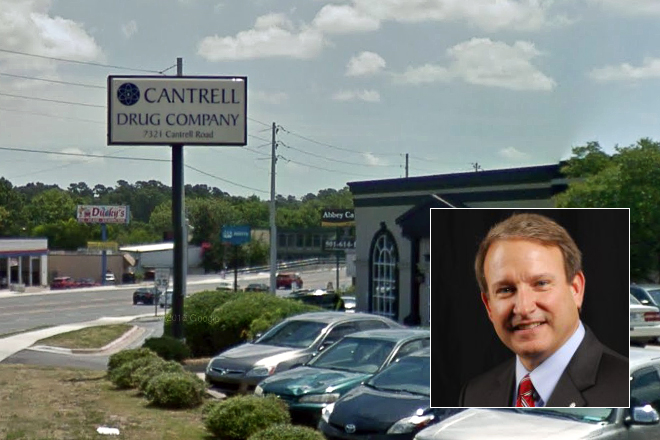by Kyle Massey on Monday, Feb. 11, 2019 12:00 am 2 min read

Grow Tech Eric Pruitt helps a valuable little plant get off to a good start. (Kerry Prichard)
The town is Cotton Plant, but since Bold Team LLC opened the state’s first operating medical marijuana cultivation center on Industrial Park Road, the municipality stands to reap a windfall from the cannabis plant.
Bold Team’s first plants are growing now, and some are expected to be ready for Arkansas’ new medical marijuana market by April. Customer Relations Director Robert Lercher described a four-month cultivation, harvest and drying process, step by step.
- On day one, a clip or “clone” is taken from one of the nursery’s mother plants and placed in a growing medium called Rockwool. There it spends 10 to 15 days under LED lights developing roots.
- Afterward, they go into 2-inch pots with a grow medium for a couple of days. All plants above eight-and-a-half inches must be tagged with a bar code for state tracking.
- Plants are placed in 3-gallon pots in Bold Team’s Vegbay, a bright holding area where they will spend three to four weeks under 18 hours of daily light, six hours of darkness.
- The still-budless cannabis plants are shifted into one of seven “flower bays” where they will spend another 60-65 days developing the buds that are used to create most medicinal cannabis products. During this time, they get 12 hours of dark, 12 of light.
- “The plant will then be harvested and cured for seven to 10 days, then packaged for the dispensaries,” said Lercher, whose wife, Kyndall, is a primary owner of the company and its medical director.
Lercher praised town leaders in Cotton Plant, including former Mayor Willard Ryland, for their support in getting the cultivation center built. Under an August 2017 declaration of intention, Bold Team will remit 1 percent of its gross sales to Cotton Plant.
State licensing protocols gave extra points to cultivation companies who were willing to set up shop in economically depressed areas.Cotton Plant is just such a place, one of hundreds of Delta towns that spiraled into decline with the mechanization of farm work decades ago.
Bold Team leaders say that they were looking for a site in line with the state’s economic development goals, but they also liked Cotton Plant because the site, just inside the city limits, easily meets state requirements by being more than 3,000 feet from any church or school.
“You’d be surprised to find how hard it is to find a well-situated site that meets that rule,” Lercher said.








